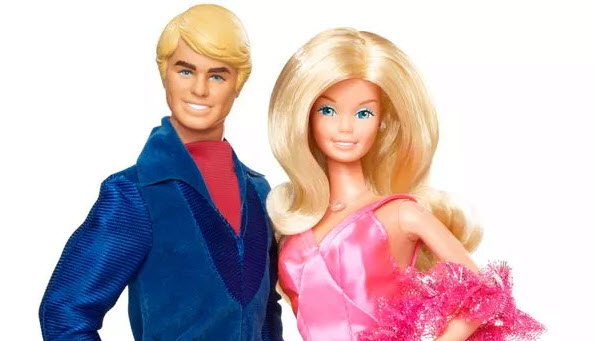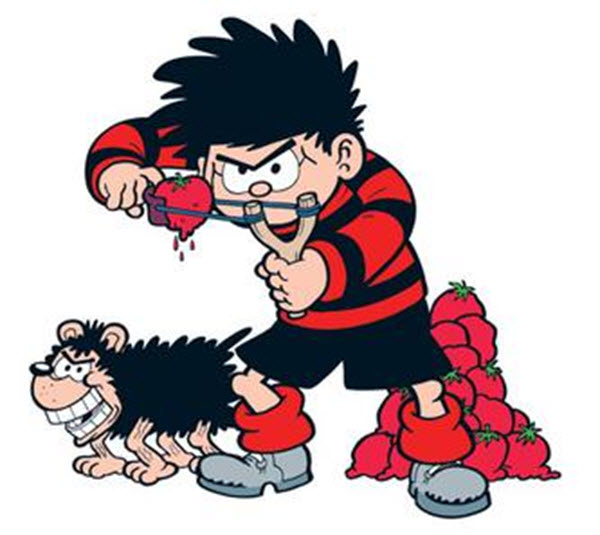
A Philosophical Adventure Through the Existential Toy Box
If you were like me and saw a very one-dimensional view of Barbie, you may be pleasantly surprised at the empowering effect, the new 2023 Barbie movie leaves you with.
The movie, starring Margot Robbie as Barbie, and Ryan Gosling as her male counterpart Ken, create a compelling and gripping story based on very real philosophical themes surrounding life and gender stereotypes. While wrapped in a colourful and engaging package, the film delves into profound themes such as empowerment, self-discovery, friendship, and overcoming adversity.
The Philosophy of Aesthetics and Barbie
Beauty and Femininity
The Barbie doll, introduced by the American toy company Mattel in 1959, has become a cultural icon, symbolizing various societal values and beliefs, including those related to gender.
Barbie has been often analyzed within the domain of aesthetics, particularly concerning standards of beauty and femininity. With her slender figure, symmetrical features, and stylish wardrobe, Barbie is designed to represent an idealized form of female beauty. This has led to debates about the impact on children’s perceptions of body image and the pursuit of unattainable physical ideals.
For women who equated Barbie’s expansive collection of accessories, cars, and houses is often viewed as an endorsement of materialism and consumer culture. This aspect raises philosophical questions about the values imparted to children through play, potentially equating self-worth with possessions and appearance.
However, throughout the movie, the central theme played, creates a deeper meaning attached to a purposeful life, a life that is not validated or dependent on status or the accumulation of stuff to give integrity, beauty and meaning to one’s life. Instead, it imparts a truth that the purpose of one’s life is to be found and uncovered, and discovered as a journey.
Barbie as a Tool for Empowerment
Despite criticisms, Barbie has also been used to promote female empowerment and individuality. Some view Barbie as a positive role model, reflecting the potential for women to take on various roles in society. This aspect reflects a philosophy of self-determination and challenges the idea that women must conform to traditional paths.
The concept of Barbie confronting an existentialist crisis might seem far removed from the usual themes of friendship, adventure, and self-discovery common to Barbie films and merchandise. However, exploring this notion provides a unique lens through which to examine deeper philosophical questions related to identity, meaning, choice, and existence.
In this hypothetical scenario, let’s imagine a Barbie storyline that delves into existentialist themes, aligning with philosophers like Jean-Paul Sartre, Friedrich Nietzsche, and Simone de Beauvoir.
Existential Themes in the Barbie Context
Existential Crisis and Barbie’s Identity
An existential crisis refers to a moment when an individual questions the very foundations of their life, seeking answers about existence, meaning, and purpose. In Barbie’s world, this might manifest as a profound questioning of her numerous roles, professions, and relationships.
Authenticity and Conformity
Existentialism emphasizes living authentically and embracing individual freedom. A Barbie existential crisis storyline might explore the tension between her roles as society’s ‘ideal woman’ and her authentic self. Is she conforming to societal expectations, or is she true to her desires and beliefs?
Freedom, Choice, and Responsibility
Barbie, in this existential narrative, could grapple with the burden of freedom and choice. While she has the freedom to choose her path, she also bears the responsibility for her decisions. This concept reflects Sartre’s idea that we are “condemned to be free” and must take ownership of our choices.
Existential Angst and Barbie’s Relationships
Barbie’s relationships with other characters, such as Ken and her friends, could be reimagined in an existential context. She might face existential angst, a feeling of disorientation and confusion, as she navigates the complexity of human connection, empathy, and loneliness.
The Absurdity of Existence
In line with Albert Camus’s philosophy of the absurd, Barbie might confront the apparent meaninglessness of life. She might question the purpose of her endless careers, relationships, and adventures, seeking meaning in a seemingly arbitrary world.
Barbie’s Existential Journey
A storyline that follows Barbie through an existential crisis would likely unfold as a deeply introspective and transformative journey. Through confronting existential dilemmas, she might learn to embrace the uncertainty of life, find meaning through her choices, and connect with her authentic self.
Barbie and the existentialist crisis is an unlikely but intriguing concept that invites us to consider the complexity of human existence through the lens of a cultural icon. This exploration moves beyond the superficial and delves into profound philosophical questions that resonate with all individuals, regardless of age or background.
While such a storyline might be unconventional for the Barbie brand, it illustrates the potential richness of character and narrative that can be found even in unexpected places. By engaging with existential themes, we can uncover new dimensions of understanding, empathy, and self-reflection.
Whether or not such a storyline would ever become a reality, the very idea of Barbie grappling with existentialism invites us to reflect on our own lives, choices, and authenticity. It demonstrates that philosophical exploration is not confined to academia but can be found in everyday objects, stories, and experiences.
But What About Ken?
A Man Living in a Barbie World
Ken Carson, more commonly known as Ken, has been Barbie’s counterpart since 1961. As a key figure in the Barbie universe, Ken reflects various aspects of masculinity, gender roles, and societal norms. This article explores the philosophical dimensions related to Ken, including considerations of gender, aesthetics, ethics, and identity.
The Aesthetics of Masculinity
Idealized Masculinity
Much like Barbie’s embodiment of femininity, Ken is designed to represent an idealized form of masculinity. With broad shoulders, a trim waist, and stylized features, Ken’s appearance is rooted in traditional masculine ideals.
Ken’s initial role as Barbie’s boyfriend positioned him primarily as a supportive figure, rather than an independent character with his own story. This portrayal raises questions about the stereotyping of men in relationships and the expectations placed on them.
Relationships and Emotional Intelligence
Ken’s portrayal in various relationships, not only with Barbie but with other characters, allows for an exploration of themes related to emotional intelligence, empathy, and connection. This aspect offers a more nuanced understanding of masculinity beyond mere stereotypes.
In the hypothetical Barbie movie centred on existential themes, Ken’s role would be integral to the narrative and would likely extend beyond his traditional function as a supporting character. Let’s explore how Ken might contribute to the storyline of “Barbie and the Existentialist Crisis.”
Ken as a Mirror to Barbie’s Existential Journey
A Philosophical Companion
Ken could be portrayed as Barbie’s philosophical companion, joining her in her existential exploration. Together, they might question the nature of existence, meaning, and authenticity, engaging in deep dialogues that reflect the philosophical works of existentialist thinkers.
A Contrast to Barbie’s Crisis
Alternatively, Ken might represent a contrast to Barbie’s existential struggles, embodying a contentment or acceptance of societal roles and norms. His comfort with his own identity could serve as a foil to Barbie’s confusion and search for authenticity, highlighting the tension between conformity and individuality.
A Catalyst for Change
Ken’s actions or beliefs might trigger Barbie’s existential crisis. Perhaps he challenges her to question her roles, her choices, and her understanding of herself, serving as a catalyst for her introspective journey.
A Symbol of Human Connection
Ken could also symbolize the importance of human connection in existential philosophy. Through their relationship, the movie might explore themes of empathy, loneliness, and the profound connection that can exist between individuals. Their interactions could underscore the existential belief in creating meaning through relationships and shared experiences.
A Co-Explorer of Absurdity
In a more absurdist twist, Ken might join Barbie in embracing the absurdity of existence, recognizing the seemingly arbitrary nature of life and society’s expectations. Together, they could embark on a journey to find joy, purpose, and authenticity in a world that appears meaningless on the surface.
Through Barbie and her Existentialist Crisis, Ken’s role would be multifaceted and vital to the exploration of existential themes. Whether as a philosophical companion, a contrast, a catalyst, a symbol, or a co-explorer, Ken’s character would add depth and complexity to the narrative.
Such a portrayal would represent a significant departure from traditional depictions of Ken and would contribute to a rich and thought-provoking cinematic experience. By integrating Ken into the existential narrative, the movie would offer insights into not only individual identity and existence but also the complexities of relationships and the human condition.
While purely hypothetical, this exploration demonstrates the potential for children’s media to engage with profound philosophical ideas and provide meaningful content that resonates with audiences of all ages. It illustrates the versatility of well-known characters like Barbie and Ken and the untapped opportunities for creative and intellectual storytelling within this universe.
While the specifics of the new Barbie movie’s content remain fictional in this analysis, the exploration of potential themes provides insight into the deeper meanings and philosophical content that such a film might contain. The empowerment of individuals, the complexity of relationships, the challenges of adversity, and the nuanced understanding of gender roles all contribute to a rich tapestry of lessons and reflections.
In line with previous Barbie movies, this hypothetical new instalment would likely continue to engage audiences not just through entertainment but through thoughtful storytelling that resonates with universal human experiences and values.
By combining vibrant visuals with substantive content, the Barbie franchise continues to demonstrate how children’s media can be both enjoyable and intellectually stimulating, encouraging reflection, empathy, and growth.



